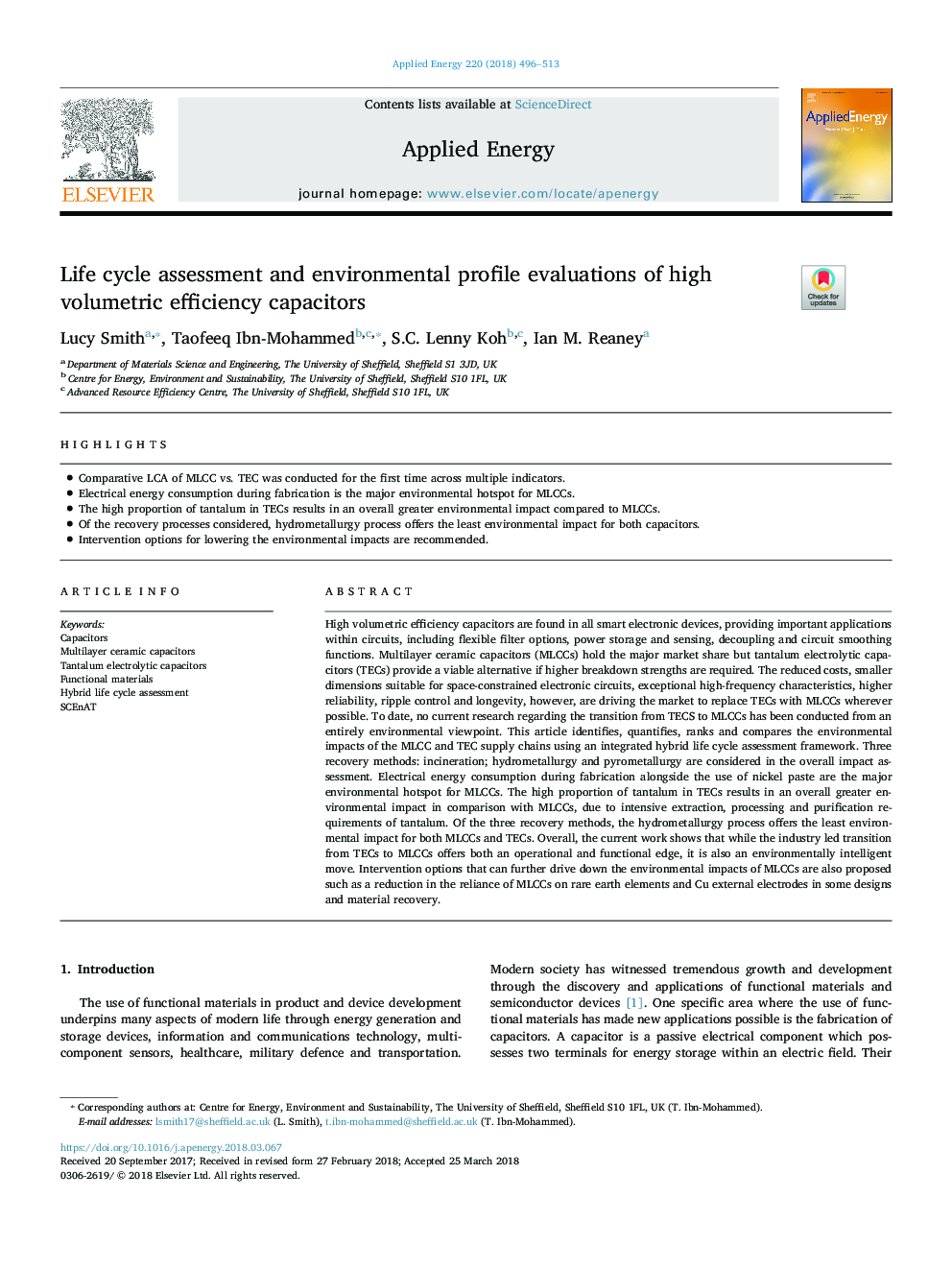| کد مقاله | کد نشریه | سال انتشار | مقاله انگلیسی | نسخه تمام متن |
|---|---|---|---|---|
| 6680281 | 1428070 | 2018 | 18 صفحه PDF | دانلود رایگان |
عنوان انگلیسی مقاله ISI
Life cycle assessment and environmental profile evaluations of high volumetric efficiency capacitors
ترجمه فارسی عنوان
ارزیابی چرخه زندگی و ارزیابی محیطی از خازن های راندمان بالا
دانلود مقاله + سفارش ترجمه
دانلود مقاله ISI انگلیسی
رایگان برای ایرانیان
کلمات کلیدی
موضوعات مرتبط
مهندسی و علوم پایه
مهندسی انرژی
مهندسی انرژی و فناوری های برق
چکیده انگلیسی
High volumetric efficiency capacitors are found in all smart electronic devices, providing important applications within circuits, including flexible filter options, power storage and sensing, decoupling and circuit smoothing functions. Multilayer ceramic capacitors (MLCCs) hold the major market share but tantalum electrolytic capacitors (TECs) provide a viable alternative if higher breakdown strengths are required. The reduced costs, smaller dimensions suitable for space-constrained electronic circuits, exceptional high-frequency characteristics, higher reliability, ripple control and longevity, however, are driving the market to replace TECs with MLCCs wherever possible. To date, no current research regarding the transition from TECS to MLCCs has been conducted from an entirely environmental viewpoint. This article identifies, quantifies, ranks and compares the environmental impacts of the MLCC and TEC supply chains using an integrated hybrid life cycle assessment framework. Three recovery methods: incineration; hydrometallurgy and pyrometallurgy are considered in the overall impact assessment. Electrical energy consumption during fabrication alongside the use of nickel paste are the major environmental hotspot for MLCCs. The high proportion of tantalum in TECs results in an overall greater environmental impact in comparison with MLCCs, due to intensive extraction, processing and purification requirements of tantalum. Of the three recovery methods, the hydrometallurgy process offers the least environmental impact for both MLCCs and TECs. Overall, the current work shows that while the industry led transition from TECs to MLCCs offers both an operational and functional edge, it is also an environmentally intelligent move. Intervention options that can further drive down the environmental impacts of MLCCs are also proposed such as a reduction in the reliance of MLCCs on rare earth elements and Cu external electrodes in some designs and material recovery.
ناشر
Database: Elsevier - ScienceDirect (ساینس دایرکت)
Journal: Applied Energy - Volume 220, 15 June 2018, Pages 496-513
Journal: Applied Energy - Volume 220, 15 June 2018, Pages 496-513
نویسندگان
Lucy Smith, Taofeeq Ibn-Mohammed, S.C. Lenny Koh, Ian M. Reaney,
